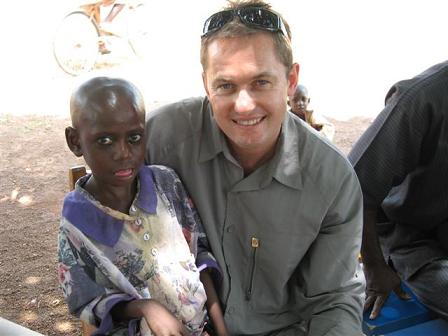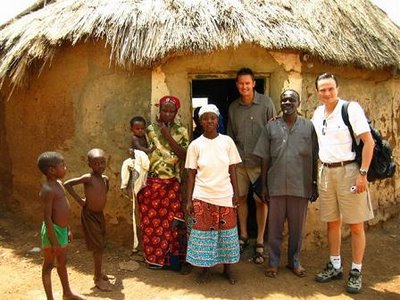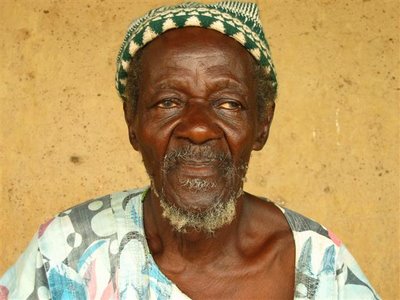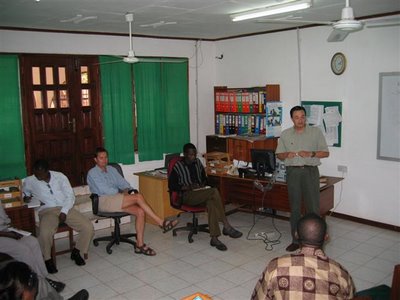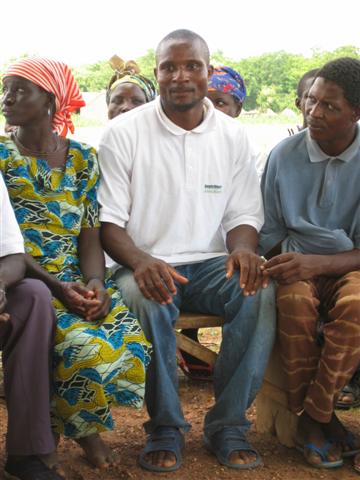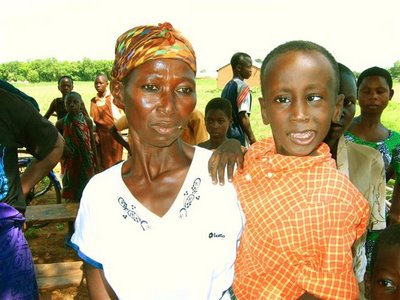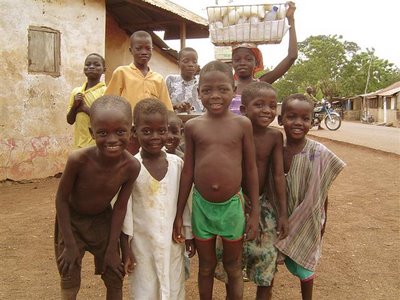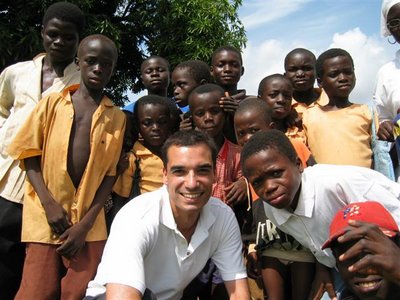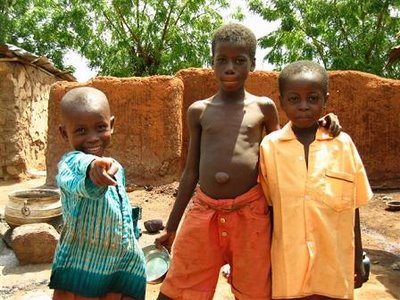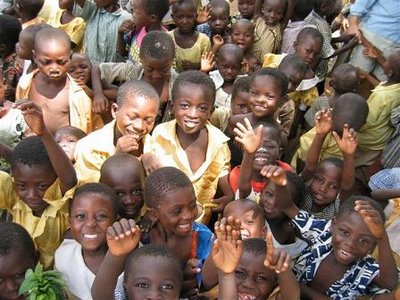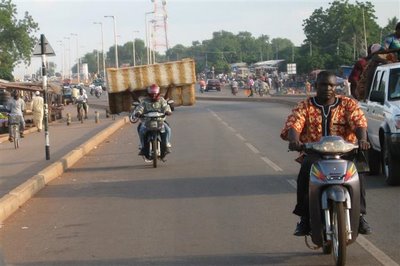Deadlines are the same wherever you are – the pressure mounts!
The first is next Tuesday when we are facilitating a workshop with a number of agencies that have an interest in improving care for the mentally ill. Attendees will come from a wide variety of organisations such as the Ghana Health Service, World Health Organisation, World Bank and a number of donor agencies including foreign embassies that have development funds available.
The purpose of this workshop is to refocus the debate on the critical areas facing the mentally ill and discuss how they may be addressed. We will explain what we have seen – and this is particularly important given we are completely impartial, which I will elaborate on later – and then discuss how the draft legislation is a good starting point but it can never address all of the issues (such as ending social marginalisation of the mentally ill), before outlining our view of an all-encompassing Community Mental Health & Development plan for the country. Whilst in the developed world it is the government which usually will formulate its social policies, it is very clear that here in Ghana, as a developing country, there are many outside agencies (such as NGOs like Basic Needs) which have a significant input into the debate, and that is what we are doing here.
The second deadline is on Wednesday when we are facilitating an internal workshop for Basic Needs to reflect on where it has come from in Ghana over the last four years, looking at what has and has not worked well, and then look forward over the next five years as to where it should focus its efforts. Our work has highlighted a number of fundamental issues that need to be debated if the organisation is to be as effective as possible going forward. None of this is rocket science, just basic questions surrounding issues such as:
* developing a broad and long term donor base (you would not invest all of your savings in just one company, or buy a house with a bank overdraft);
* trying to meet the career ambitions of individuals and considering succession planning; and
* agreeing priorities such as whether to consolidate before expanding further.
Back to the job in hand, and that has meant we have been on the road meeting people. Here we are outside our apartment which we call Mogadishu… The area really is run down and a mess, but then again, this is Africa!

On Tuesday we had a meeting with the Minister of Health, who is in the cabinet and reports to Ghana’s President. He is the one on my right in the light blue short sleeved shirt.
He was originally a soldier and, I believe, was involved in one of the country’s military coups in the 1970’s, but since then has been Minister for Agriculture, (I think) Minister for Roads and is now Minister for Health. It was an interesting meeting, because when we explained who we are and what we were doing, he became very engaged. He said that because we were independent and not from the medical profession, we had no vested interest, job or budget to protect, and that meant we could truly be impartial – whatever we said would have no consequences on our job or lives back home. He wanted us to be totally frank about the weaknesses and challenges that we saw and what we thought should be done, because he often heard his own people only emphasise the positives and their successes rather than the problems.
We took him through our views and he agreed that mental health was an important issue which may have been sidelined for too long. Whilst actions speak louder than words, and whether anything happens about it is another matter, what is clear is that this was only the second time Basic Needs had engaged with the Minister and it is important to continue the dialogue with both himself and his department, as inevitably one needs to say the message many times before it is truly heard and understood.
That afternoon we paid a visit to the local PwC office in Accra. I had been speaking with Felix, the Advisory and BRS Partner, for some weeks but because we spent most of our time in the North of the country we had not had a chance to meet.
The two others in the picture work on the local audit of Basic Needs, so it was very useful to make contact with them and explain what we were doing. They have helped put us in touch with someone who may be able to help the organisation identify donor funding.
Wednesday was a day of solid work. Our apartment is too small to work in, and the Basic Needs team were all busy, so we decamped to a hotel and got down to it. We have all worked together on this programme so far, but given the looming deadlines we split the work up between us, which meant that by the evening we had completed most of the material for the workshops next week.
We used Thursday to take Lance, the Ghana Country Manager, through our work from the day before. Because none of us have worked in mental health before, or in an NGO, we have looked at Basic Needs in Ghana with fresh eyes. It was obvious from our discussions with Lance that we saw the organisation with a different perspective. He was so pleased, and commented that we had brought a clarity to challenge ahead that he had been struggling with himself, particularly in relation to the immediate priorities.
Later in the day we did an interview with a journalist from the Daily Graphic, Ghana’s main newspaper (he’s the one in the middle).
We talked about the Ulysses programme and what we had been doing, but also focused on the main message we wanted to get across: that the government needed to place an increasing priority in caring for the mentally ill, as to do otherwise would have adverse economic, social and moral consequences. The journalist has been following Basic Needs for some time and was both personally interested in the subject and well-informed, which is encouraging.
A few more pictures from the last week. Here’s another training day we ran for the Basic Needs Accra team. Unfortunately the turnout was low because of some last minute drop-outs (sounds suspiciously like a PwC training day…)

And here’s a picture of us with some of the Accra team:
Last week we did some work at Ankuful Psychiatric Hospital, which is on the south west coast. We stayed in the area over the weekend, and paid a visit to Cape Coast Castle.
This is a truly shameful part of Britain’s history. It was built in 1653 but captured by Britain in 1665 where it became the heart of the slave trade. Slaves were captured throughout West Africa, and were brought to the Castle where they held in dungeons before being shipped to Europe. The conditions on the five week boat trip were so cramped and unhygienic that it was apparently not unusual for a boat to lose half of its human cargo on a voyage. Between the late 17th century and the early 19th, when the slave trade largely ceased, it is estimated that between12-20 million Africans were sold and exported as slaves.
Entering the darkness of the dungeons was not a pleasant experience. There were no sanitary facilities, and 600-1000 slaves were held in three rooms each no bigger than a typical large hotel room. Any that tried to escape or proved difficult would be placed in a cell without food or water where they would usually die in two to three days.
The Castle gave us a great view of Cape Coast town, where we saw both of the fishermen as they worked on their boats and nets…
… and the slum, mess and poverty that characterises so much of this country.
Finally a picture of us in a national park earlier in the day…
… and another taxi driver who writes messages of inspiration to himself.
(If the picture doesn’t come out very well, he was written “Still… Good Boy” – clearly someone who doesn’t want others to think he has become a naughty boy!)

















